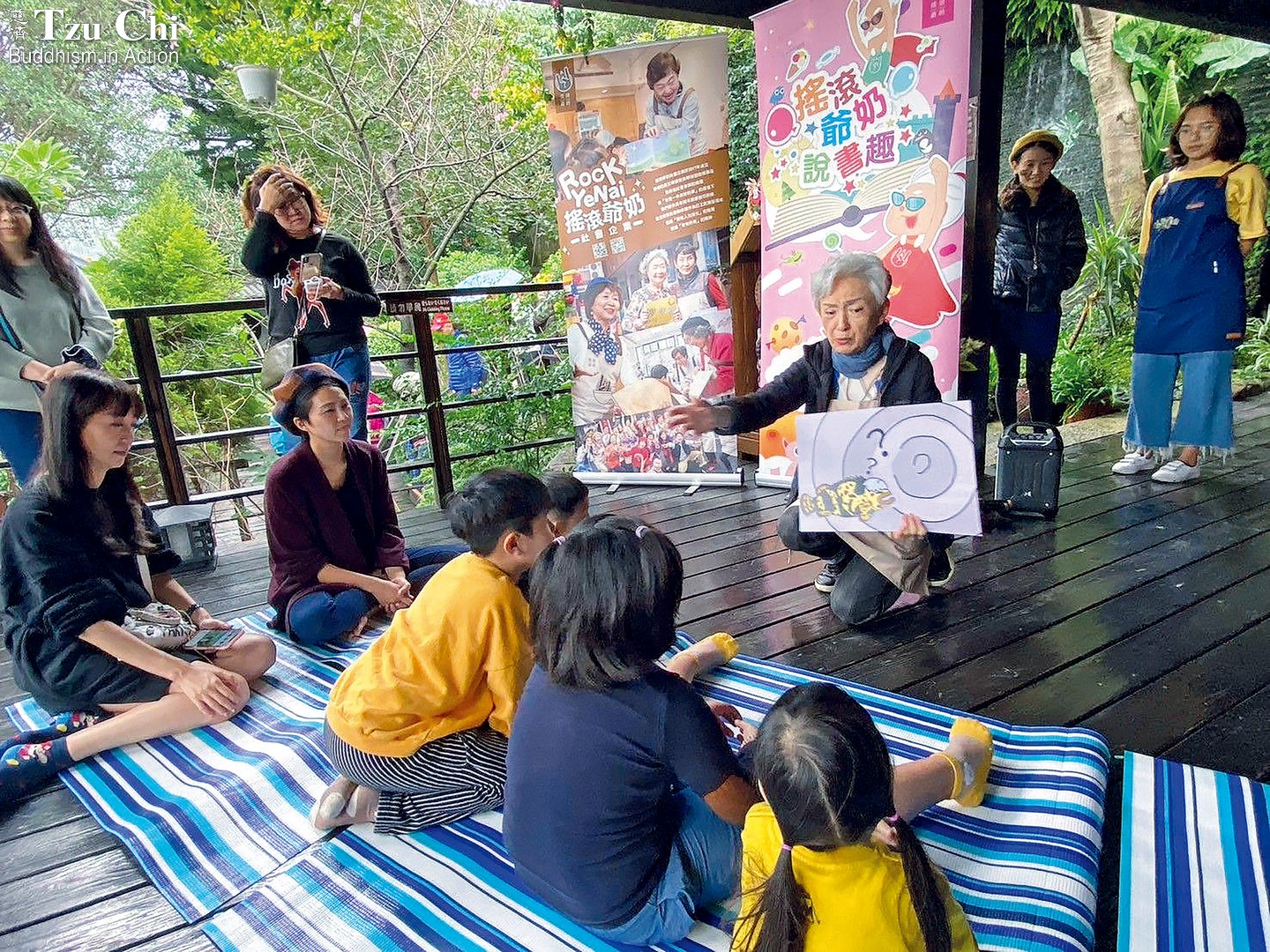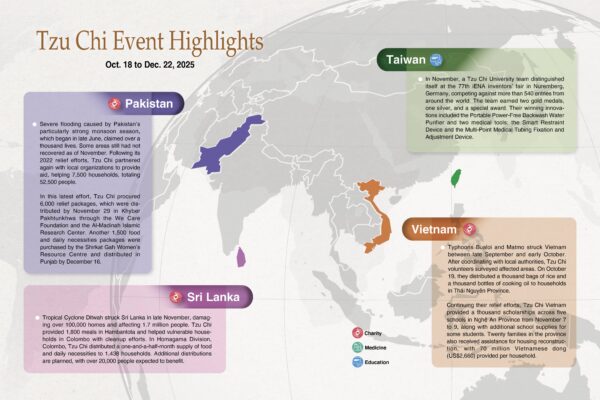By Yeh Tzu-hao
Edited and translated by Wu Hsiao-ting
Photo courtesy of RockYeNai
The social enterprise RockYeNai trains older adults to become skilled storytellers. More than 600 seniors have taken part since it was founded in 2017, sharing their voices through over 1,200 storytelling events across Taiwan.

From initial unfamiliarity to confident performances on stage, senior storytellers from RockYeNai use picture books as a medium to connect with audiences of all ages across a variety of settings.
In 2016, a news report revealed that 25.9 percent of suicides in Taiwan involved individuals aged 65 and older. This sobering statistic made Lin Zong-xian (林宗憲) acutely aware of the mental health challenges facing the elderly. Drawing on his years of experience in picture book reading and storytelling instruction, he saw a way to help. The following year, he founded RockYeNai (meaning “rocking grandpas and grannies”), a social enterprise that trains adults over 50 to tell stories using picture books, enriching their lives through creative expression and stronger social connection.
Zhong, one of the early trainees, recalled that when RockYeNai first started, participants received a stipend of 300 New Taiwan dollars (about US$10) for each storytelling session. Though modest, the incentive served as a significant source of encouragement for many seniors.
“This stipend had real meaning,” Lin explained. “I wanted them to see themselves as professionals. Storytelling within our group wasn’t something to be taken lightly, and the stipend wasn’t just a handout—it was a recognition of the skills they had developed, something they had truly earned.”
Lin holds his trainees to high standards, refusing to lower expectations simply because they are older. Unlike many nonprofits that offer free programs to attract seniors, he charges tuition—underscoring RockYeNai’s professional approach—and actively seeks opportunities for participants to perform in various venues. Although the stipend was discontinued last year, participation has remained strong. Picture book classes continue to be held every month in northern, central, and southern Taiwan, drawing robust attendance. The appeal for many participants goes beyond learning new skills; it also offers a chance to make friends. Some have even found emotional healing through the experience.
One participant, now a popular internet personality known as Grandma Downstairs, spoke about how her storytelling evolved through her time with RockYeNai. A former preschool teacher, she had experience reading stories to children, but RockYeNai opened up a new world for her. She had once simply read aloud to preschoolers, but her storytelling was transformed after she learned from Lin and other instructors. She can now captivate adult and senior audiences as well. “Storytelling is so diverse—you can act, narrate, sing. There are so many ways to bring a story to life,” she said enthusiastically.
Beyond technique, storytelling also became a source of healing. “Several classmates had lost their husbands, but they gradually worked through their grief by sharing picture books,” she reflected. “I, too, came to terms with my mother’s passing by connecting with the stories we told.”
After more than seven years of experimentation and development, Lin and his team have shown that their model is both feasible and sustainable. With proper training, seniors can share stories not only with children but also with university students and working professionals. Their ability to blend life experience with storytelling has also drawn attention; for example, last year a financial services company invited participants to help raise awareness about fraud prevention in local communities.
Looking back, Lin said that RockYeNai’s early success wouldn’t have been possible without a grant from the first round of Tzu Chi’s Vision Future Incubator. With more than one million New Taiwan dollars (US$33,300) in prize money, he was able to rent venues for training sessions and offer stipends to participating seniors. This financial support allowed him to test RockYeNai’s appeal without expending significant time and energy on market research. He acknowledged that without Tzu Chi’s backing, it would likely have taken another year or two to reach their current level of success.
Today, RockYeNai has established a solid foothold in the social enterprise sector. It has trained more than 600 middle-aged and senior storytelling experts, who perform at fairs, department stores, cafés, senior centers, and nursing homes, reaching audiences of all ages. The initiative embodies the ideal of “productive aging,” empowering older adults to contribute actively to their communities through storytelling and giving them a renewed sense of purpose.
“The Vision Future Incubator helps shorten the trial-and-error phase for young entrepreneurs,” Lin said. “It supports ESG [environmental, social, and governance principles], the United Nations’ Sustainable Development Goals, and social enterprises. It’s a truly brilliant strategy.”



